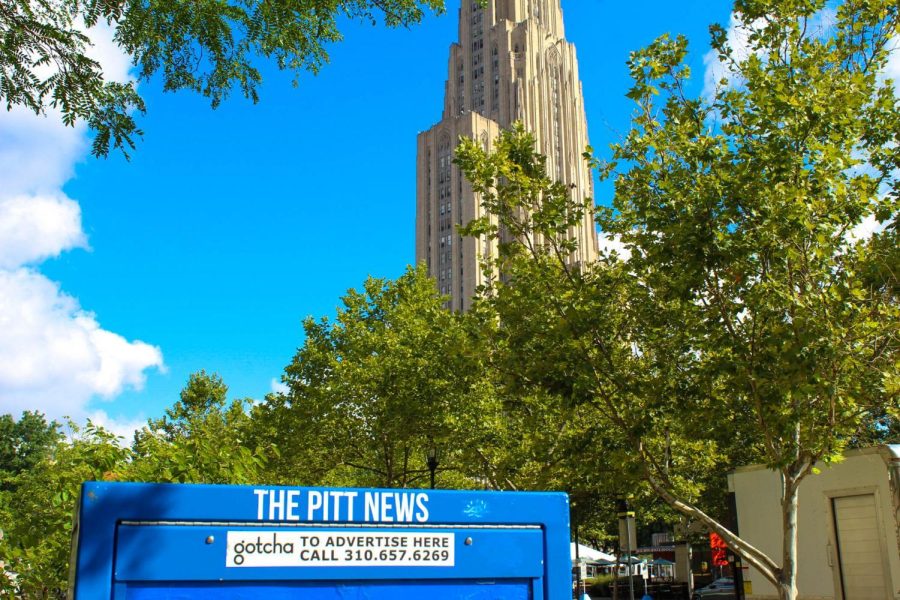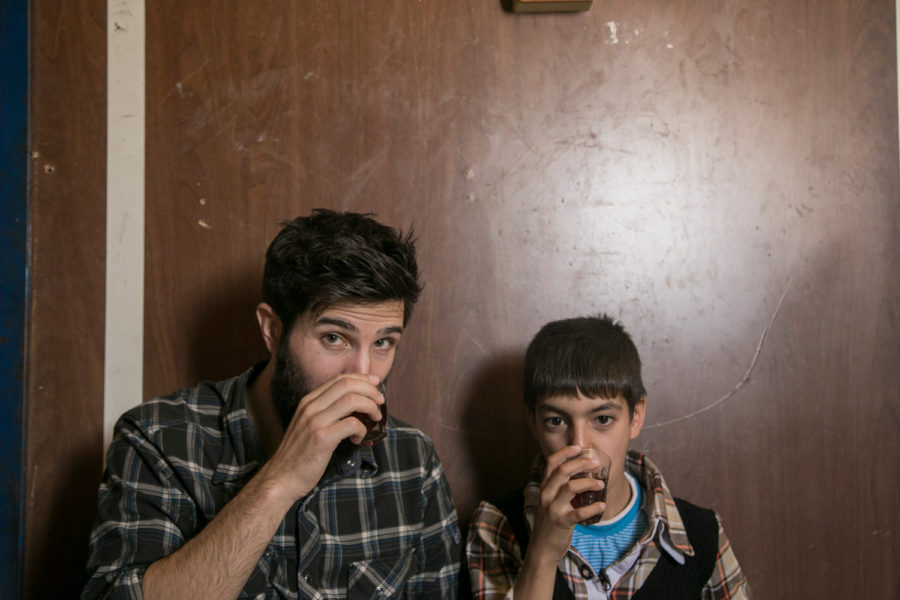Think back to your favorite memories of elementary school. Some of them probably have nothing to do with learning at all — recess, snow days, early releases. Many of us loved the breaks from working and would always be thinking about the next time we’d be able to relax.
Most of us, however, also had the privilege of taking these breaks and not worrying about returning to school afterward or even thinking about the impact of missing a few days. For a boy named Raouf, now 12, breaks from school are filled with fears about safety and the possibility that he may not return at all.
Raouf is just one of millions of Syrian refugees who face a similar reality every day. He lives in the Zaatari refugee camp in Jordan, which is the subject of the American film “Salam Neighbor” — a 2016 documentary about two Americans who live in the camp for one month, telling stories of refugees displaced by the Syrian civil war.
The film was shown Tuesday night at the Frick Fine Arts Building, but the discussion following it highlighted one approach to dismantling negative stereotypes — small-scale change.
It’s not practical or even necessary for everyone to dedicate their time to large-scale activism such as devoting your life to humanitarian relief, protesting or even attending an hours-long film screening and discussion — and that’s okay.
Change can often seem unattainable, but in Pittsburgh, a city with a large immigrant and refugee population, it’s more than feasible to make small, daily efforts like joining one of the several clubs at Pitt that work with refugees, volunteering as an English tutor in the City to gradually change perceptions surrounding refugees or supporting immigrant-run businesses.
Focusing on microlevel change in daily interactions with friends, family and peers is a more manageable form of education than attempting to completely flip entire belief systems at once.
With “Salam Neighbor,” for example, even sharing the trailer on Facebook can raise awareness of the refugee crisis and perhaps provide a view of refugees that someone hadn’t considered before.
Even though large-scale change obviously has importance, focusing on small-scale change is applicable to today’s world and, importantly, is doable for many people.
Considering the ongoing relevance of the national travel ban, negative perceptions of refugees and Muslims continue to run rampant — and along with small-scale change, larger groups and organizations in Pittsburgh continue to push for change.
An organization called Hello Neighbor sponsored the film screening and postfilm dialogue. Hello Neighbor’s focus is to help refugees transition into life in Pittsburgh, and American culture as a whole, by matching refugee families with Pittsburgh families in a mentoring program.
Another group here at Pitt, a club known as Keep It Real, focuses on in-home tutoring for children and is available from kindergarten through the end of high school, along with assistance to parents of these children with reading letters from landlords and help with other related issues.
Additionally, members act as support staff at Arsenal Elementary School with after-school programs. Mondays, 20 to 30 tutors assist with homework, STEM and reading-related activities and later have dinner with the students.
Morgan Buck, a Pitt senior studying applied developmental psychology, is a four-year member of Keep It Real and now serves as the club’s president. She clearly affirms that participation in an organization like Keep It Real has the ability to effect massive change in the treatment of refugees.
“I’ve become part of another family,” Buck said. “[The mother] calls me her daughter. I’ve been to births, weddings and funerals [with my family].”
If Buck’s experience tells us anything, it’s that choosing to step into a personal relationship with refugee children and adults can significantly change students’ perceptions or prior prejudices — a shift students should be willing to make to truly know the city they live in.
“I think that for Pitt students it’s really easy for us to live in a bubble of Oakland,” she said. “Some people [in the club] have never met a Muslim person or someone who doesn’t speak the same language as them.”
Another club option is FORGE, a refugee-focused organization at Pitt. Within FORGE, a program called SCCORE works on tutoring with refugees on the weekends. SCCORE meets with refugees at the downtown Carnegie Library and assists with matters such as bill-paying.
Saket Rajprohat, a Pitt junior and marketing major, is a former member of FORGE.
“My parents were immigrants, so I didn’t see refugees in a different light to begin with,” he said. “Other people who joined learned that refugees are not only people, but they also go through the same struggles we do — without barriers like language or money [to the extent refugees do].”
Although small-scale answers to combating prejudice against refugees are hardly all-encompassing, they can be a feasible solutions — especially for those who are concerned with political issues.
It’s as simple as signing up for a club at the activities fair or watching a film — one act to improve the perceptions surrounding refugees that can transform into wide-scale difference.
Write to Julia at [email protected]
Saket Rajprohat is a former Pitt News columnist.



